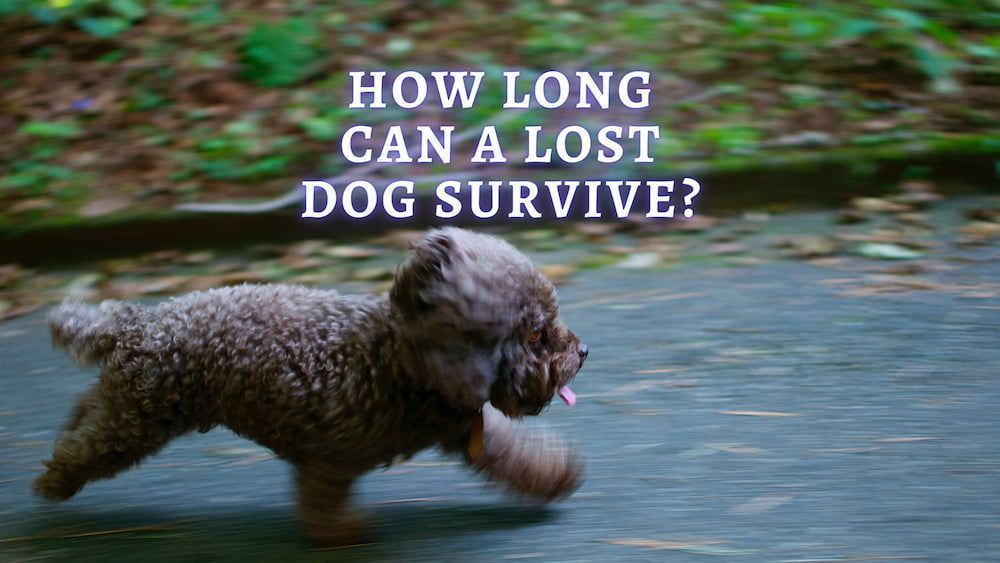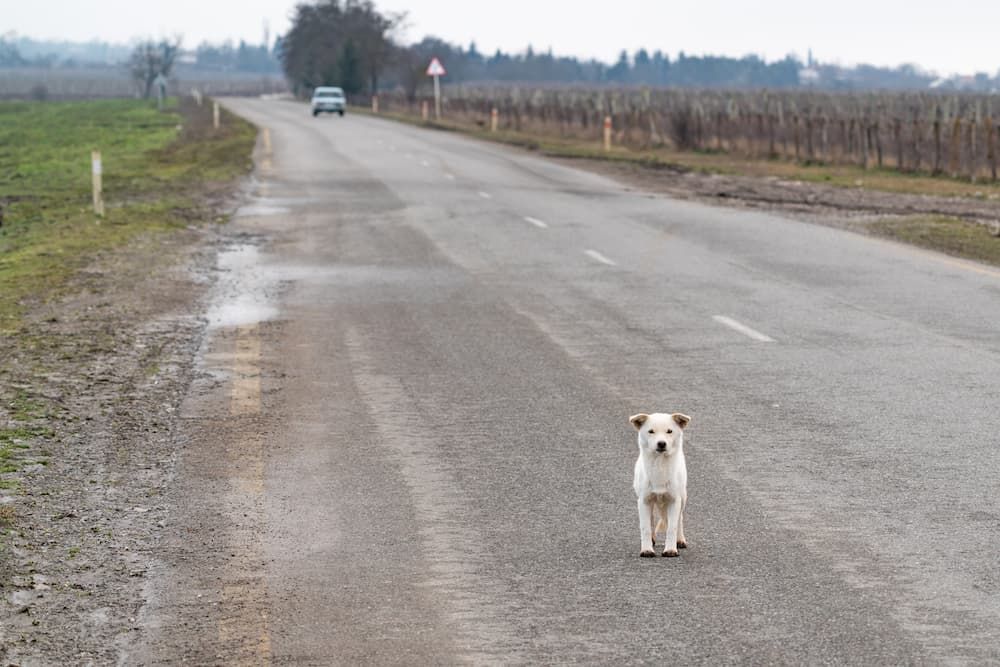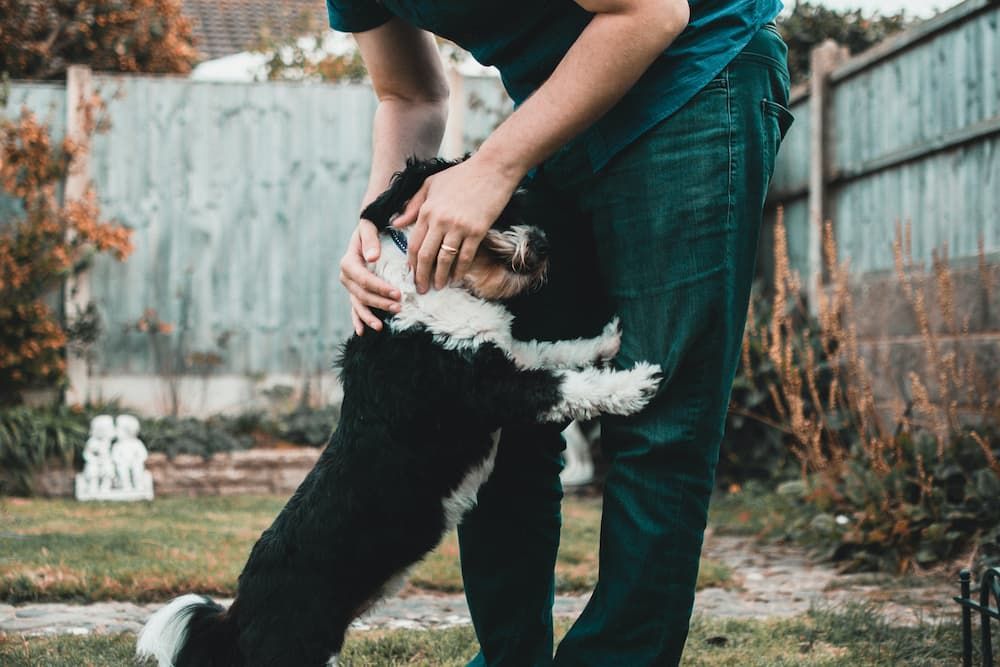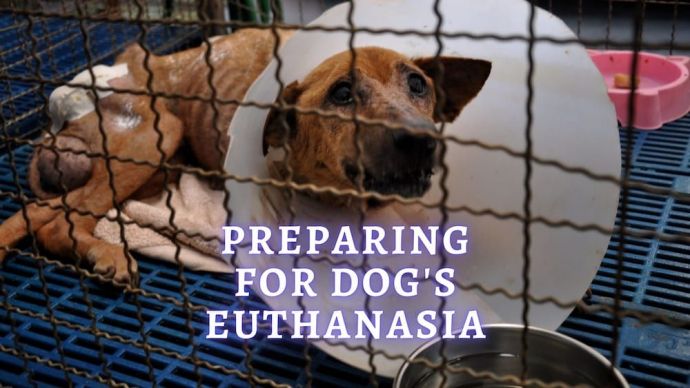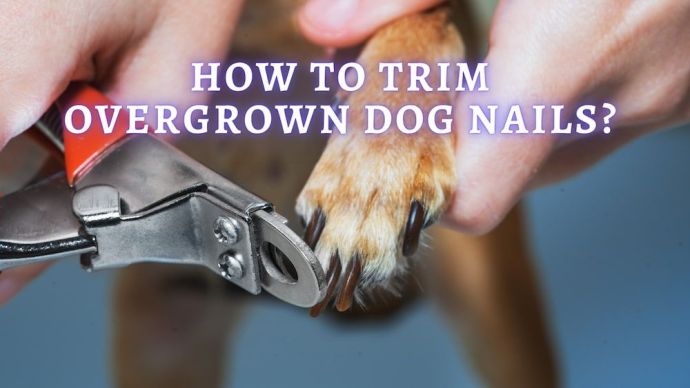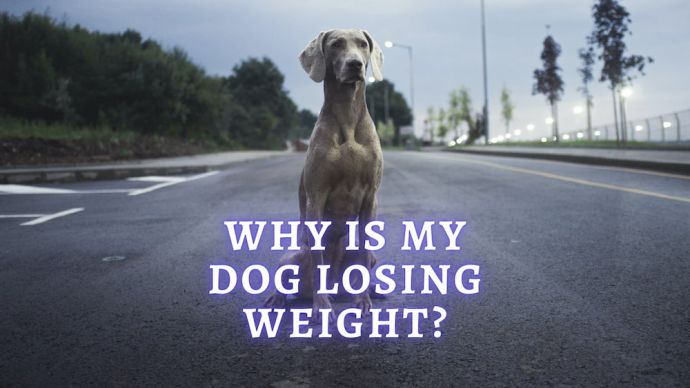How Long Can A Lost Dog Survive? 6 Ways to Find a Lost Dog
Written by:
Author: Seb Jenkins
Seb is a professional SEO writer with a degree in Journalism, he has five years of experience in writing and editing. Seb specializes in topics like dog and cat breeds, aquarium guides, and pet care. He is passionate about educating and entertaining animal owners worldwide. In his spare time, Seb enjoys writing fiction novels.
View all 83 articlesLearn about our editorial process and veterinary review board.
Viewed: 5335
Updated on: 06/08/2023
The worst nightmare of any dog owner is to find out that your little treasure is missing.
Unfortunately, it happens in the pet world. Dogs run away, dogs are taken, and dogs can become lost. While it is sad to think about, we wanted to create a resource for pet owners in case they want to prepare for the worst – or perhaps for someone looking to find their missing pet. We wish nothing but the speediest return for your best friend if that is the case.
How long can a dog survive on its own?
Unfortunately, there is no simple answer to this question. In truth, a stray dog can potentially survive for months or even years out on their own. It depends on the pup, where they are, and their situation. If a dog has no food and no shelter, it will likely not survive for more than days or weeks. However, if your pup is able to survive off treats from strangers, scraps, and discarded food, as well as having somewhere warm and dry to sleep at night, they could survive for months or years. That’s why there are so many stray dogs out there. There is no telling how lucky or resourceful your missing dog could be, so never give up hope.
READ MORE: How Long Can a Dog Go Without Eating?
What are the chances of finding a lost dog?
According to the ASPCA, 93% of lost pets are eventually recovered by their owners. [1] Therefore, you can have some peace of mind knowing that, even if your beloved pet does go missing, the likelihood is that they will return to you. The ASPCA also claims that there is a 90% chance of finding your lost pet within the first 12 hours of it going missing. Thankfully, most lost pet owners do not have to endure much more than half a day of worry. 49% of lost animal owners eventually find their pets by searching the local neighborhood where they went missing. In fact, 16% of lost dogs are able to find their way home all on their own. 15% of lost pet owners successfully use ID tags or microchips to track down their animals.
How often do lost dogs come home?
According to the ASPCA, 16% of dogs come home of their own accord after being lost. Dogs have a great sense of direction and a fantastic nose, so if you lose them around the local neighborhood, there is a chance they will be able to find their way back all on their own. In general, 93% of lost pets find their way home one way or another, whether that comes in the form of being found or making their own way back.
Ways to finding a lost dog:
There are a number of different ways to find a lost pet, depending on the animal in question and what technology the owner may or may not have set up. As we said about, more than nine out of every ten lost dogs manage to return home eventually. Therefore, if you go through this list and try everything, then chances are you will see your best friend again soon.
1. Check at home
Your first port of call should always be to check in and around your home, particularly if this is the last place you saw your pet. Many owners think their pet has escaped over the fence/gate and run away when they are actually hiding around the property. Check closets, the shed, the garage, the pool, under the cars, in your basement, in your attic, in the garden, in any crawl spaces, behind bushes, etc. Basically, check any big enough space to fit your dog and keep calling out their name as you go. Using their favorite treats and toys can give them some incentive to reveal themselves too. Lost pets are sometimes not actually lost pets.
2. Finding a dog with a microchip
If you invested in a microchip at any point before your pet was lost, this is the time to get your money’s worth! Call up the microchip company and make sure all of your contact information is correct and up to date. If someone finds your dog and hands it in, you want to make sure that you are able to be contacted immediately. If you do not know the name of the company, you can search your microchip ID number in the universal pet microchip lookup service online.
You should also call up and tell the microchip company when your pet is missing. That way, the company can let local shelters and vets know to be on the lookout for your dog.
When a member of the public finds a dog, if they cannot locate the owner in the immediate area, they will often hand them into a vet or shelter. The vet or shelter will then scan to see if the pet has a microchip and, if they do, search the database for contact information.
It is important to remember that a microchip does not contain GPS or a tracker, so you will not be able to locate your lost pet in real-time using this technology. According to the ASPCA, only 15% of dogs are found using microchips.
3. Finding a dog with a tracker
If you had your dog fitted with a tracker before they were lost, things could be a lot easier for you. Unlike the microchip, trackers allow you to determine your pet’s location in real-time, as long as they still have the tracker with them. For example, if the tracker is located in their collar and they have lost their collar, you may not be able to track them.
If you have a tracker, load up your service provider and search for the GPS location of your missing friend. Then, it is a simple case of traveling to that location and finding them as soon as possible.
READ MORE: Tractive GPS Pet Tracker Review
4. Using social media to find a dog
Fortunately, we live in a world in which anyone can connect with anyone. While social media has many faults, it can be the perfect way to locate a lost pet. You can post a lost pet message or poster to your social media profiles, so your friends and family are aware. You can ask for people to help with the search. You can post a message in a local town/city/village group chat to see if neighbors have seen the dog. You can even use hashtags to narrow down the topic of your post. For example, you could hashtag #lostdog or the area where you lost them. You may be surprised by how eager people are to help on social media. There is also a good chance that the person who finds your pet will post a message on social media looking for you, the owner.
5. Local shelters and dog owner communities
As we explained before, many people will turn a lost dog into a vet or shelter if they cannot locate the owner in the immediate area. Therefore, it is always a good idea to pay a visit to your local shelter or animal control to see whether they have had any lost dogs turned in. Even if they haven’t, it is good to make them aware of the situation. They will most of the time agree to take your contact information and give you a call if anyone turns the pet in.
6. Lost dog posters
Lost dog posters may seem a little old-fashioned to some, but they can still be helpful. The pet owner community is always out and about on walks, so putting up posters around your local area is a great way to get the word out. If you lost your dog in a popular walking area, another dog walker would likely find your pet. Make sure to pick a clear and recent image of your pet for the poster; that way, people will be on the lookout for it. If they do not know what your pup looks like and they come across it, they may assume it belongs to someone nearby. You should also include a description of your pet, their name, the collar details, your name and phone number, and any potential reward.
What to do if you find a lost dog?
If you find a lost dog, you should look to contact the owner as soon as possible. If you have seen a lost dog poster, you can call the number written on it. If you have seen a social media post, you can reply. You could even put a message of your own out on social media. However, if you had no prior knowledge of the dog being lost and cannot track down the owner, the best thing to do is take the oet to your nearest vet or shelter or animal control. They are better suited to scanning for trackers and microchips and tracking down the owners.
When should you stop searching for a lost dog?
You should never give up hope when looking for your lost animal! As we explained above, some dogs are known to survive for weeks, months, and even years on their own. You should always keep searching and keep believing that you will reunite with your four-legged friend.
How to ensure that your dog is never lost again
One of the best things to do after recovering a lost pet is to make sure it never happens again. That could mean securing the house or garden to ensure they cannot run away. It could be walking them on a lead so they cannot run off. It could also be fitting them with a tracker so you can see their real-time location at all times.
FAQ
How long do dogs stay lost?
The answer to this question depends on case to case, but most lost dogs do not stay lost for more than half a day. According to the ASPCA, 93% of lost pups are eventually recovered by their owners and there is a 90% chance of finding your lost pup within the first 12 hours of it going missing. Of course, some stay lost for longer and some are found sooner.
How do dogs survive when they get lost?
When lost, your pet’s chances of survival depend on two main things: food and shelter. If they can source food and water from strangers and general leftovers, they should be able to sustain themselves. If they can find somewhere warm and dry to sleep at night, they should also survive for extended periods. If those two boxes are ticked, lost dogs have been known to survive years before being reunited with their owners. However, as we have said before, 90% are found within just 12 hours.
What happens to most lost dogs?
The vast majority of lost dogs are found. It is pretty rare that a pet goes missing and stays lost. In fact, in only 7% of cases, the pup was never found again. According to the ASPCA, 93% of lost pups are eventually recovered by their owners and there is a 90% chance of finding your lost dog within the first 12 hours of it going missing.
Do lost dogs usually get found?
Yes, lost dogs are usually found by their owners. In only seven out of 100 cases, a lost pet remains lost forever. In most cases, your pet will be is recovered, and quickly at that. According to the ASPCA, 93% of lost pups are eventually recovered by their owners and there is a 90% chance of finding your lost dog within the first 12 hours of it going missing.
READ MORE: How Long Can A Dog Go Without Water?
Article Sources:
- “How Many Pets Are Lost? How Many Find Their Way Home? ASPCA Survey Has Answers.” ASPCA, 28 June 2012, aspca.org/about-us/press-releases/how-many-pets-are-lost-how-many-find-their-way-home-aspca-survey-has-answers.
 Dog Care Why Do Dogs Wink? Health and Behavioral Reasons Why Do Dogs Wink At You
Dog Care Why Do Dogs Wink? Health and Behavioral Reasons Why Do Dogs Wink At You - 1019
- 0
 Dog Care When to Take Cone Off Dog After Neuter? Advice on Helping Your Dog to Recover
Dog Care When to Take Cone Off Dog After Neuter? Advice on Helping Your Dog to Recover - 306
- 0
 Dog Veterinary Tips Why is my Dog throwing up: Causes and Preventing (Veterinary Advice)
Dog Veterinary Tips Why is my Dog throwing up: Causes and Preventing (Veterinary Advice) - 23424
- 5
 Dog Care Why Is My Dog Bleeding From Its Butt? Causes and treatment of rectal bleeding in the dog
Dog Care Why Is My Dog Bleeding From Its Butt? Causes and treatment of rectal bleeding in the dog - 22074
- 0
 Dog Care My Dog Keeps Scratching His Mouth: Reasons Why Your Dog Scratching Face
Dog Care My Dog Keeps Scratching His Mouth: Reasons Why Your Dog Scratching Face - 17560
- 1









